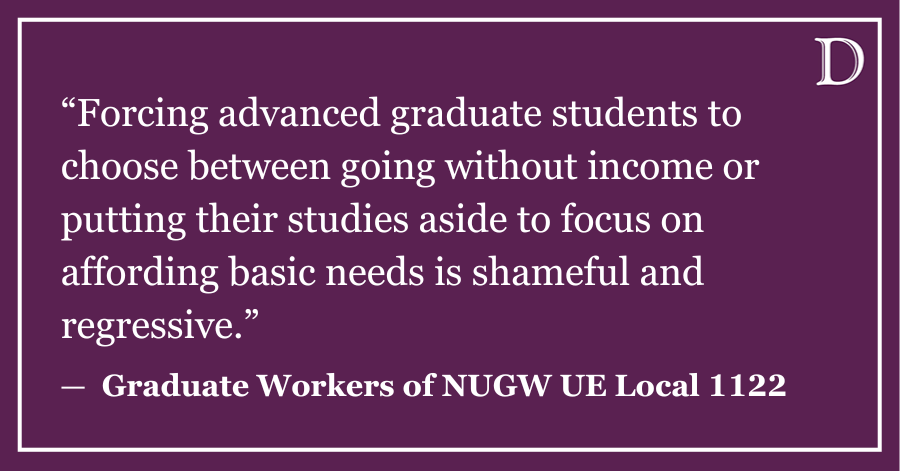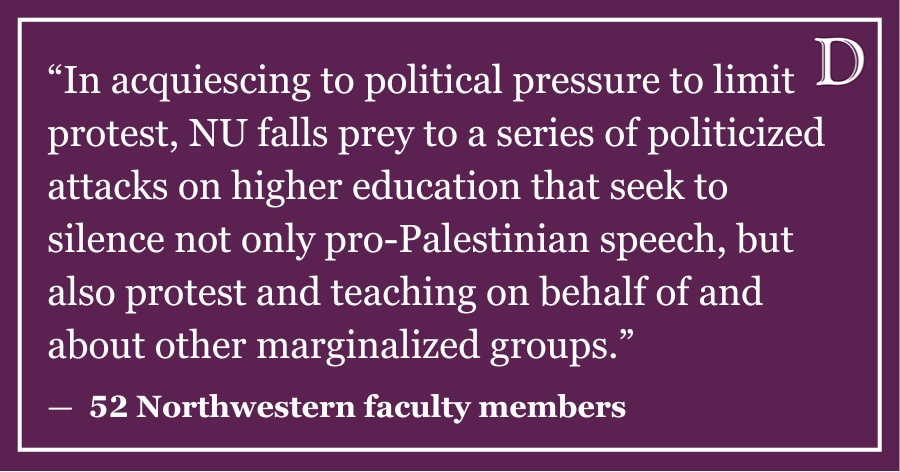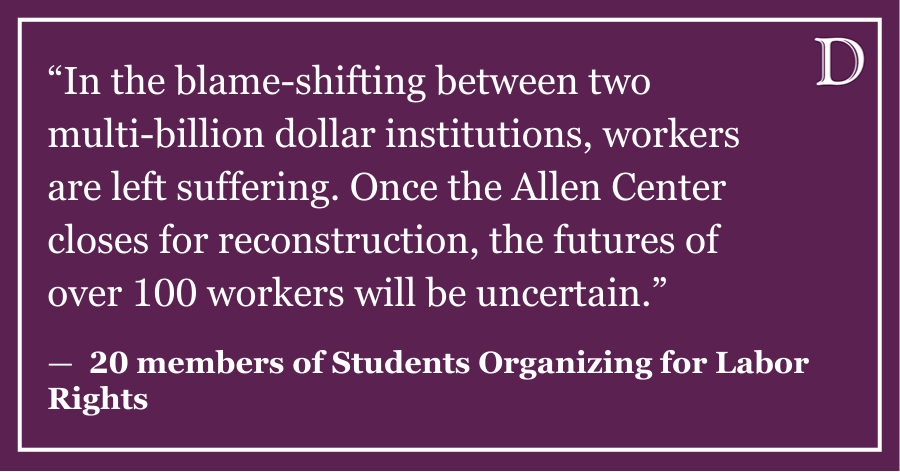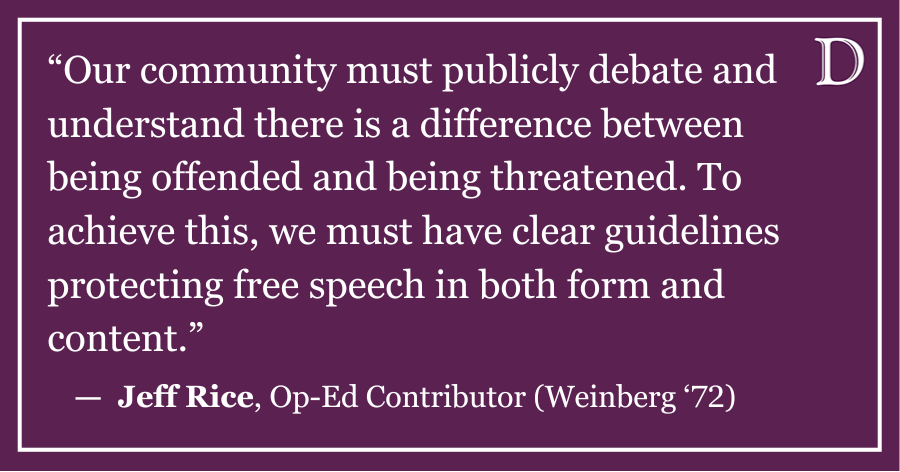Recently, Northwestern University Graduate Workers reached a Tentative Agreement with the NU administration after garnering over 2,000 signatures on a strike pledge from graduate workers. This first-ever agreement aims to improve grad workers’ overall working conditions.
Among NUGW’s significant victories is the establishment of a robust grievance procedure, which provides new protections against discrimination, harassment and abuse of authority. The procedure outlines clear and timely mechanisms for resolving grievances, and, crucially, includes the possibility of neutral arbitration. In addition, graduate students will be supported by trained stewards and the union as they go through the entire grievance procedure.
However, it is clear the University has refused to budge on a fundamental workplace protection. Notably, under the current TA, the University has made an exception regarding cases of sexual harassment and assault: they are non-grievable.
The newly established grievance procedure is a multi-level escalation system, wherein a complaint begins at the lowest level of authority –– typically within one’s own department. At each stage, if a mutually agreed-upon resolution is not achieved, the complainant retains the right to escalate the matter to the next level of authority, progressing to the dean, and subsequently to the provost.
Should the dispute remain unresolved after these steps, the individual is entitled to invoke a third-party arbitration process. This process entails engaging a neutral arbitrator from outside the University to render a final decision on the matter. But, you won’t be able to access this in instances of Title IX violations.
Why does third-party arbitration in Title IX cases matter? The harsh reality is that NU often fails to adequately discipline its own sexual offenders via current University processes.
An NBC Chicago news article uncovering a hazing and sexual abuse scandal in NU’s athletic department reveals the University held a mere nine out of 882 individuals responsible for the sexual violence allegations made against them during the 2018 – 2020 academic years.
This figure, standing at an abysmal 1%, falls significantly below the already low average of 6.3% of statewide allegations made under Title IX in which the accused are held responsible by colleges and universities across Illinois.
In an interview with NBC Chicago, NU cheerleader Hayden Richardson shared it took over two years and a lawsuit to prompt NU to initiate any investigation into her allegations of sexual assault and harassment.
In the current contract article on non-discrimination, the University has struck out the original clause requiring it to adhere to the same grievance procedure in cases of sexual harassment complaints. Instead, it has been replaced with a clause stating that “The University’s determinations regarding Title IX matters shall be final and non-grievable.”
Graduate workers, as some of the most junior members of the academic workforce, represent one of the most vulnerable populations on campus when it comes to sexual misconduct and abuse of power.
The glaring lack of accountability from NU’s Office of Civil Rights and Title IX Compliance — coupled with the office’s clear prioritization of the University’s interests over those of its students — underscores the urgent need for grievance procedures for graduate workers that is far more impartial and responsive to the needs of those it serves. This is particularly essential in cases as damaging as sexual harassment and assault.
Simply put, we need a grievance procedure which will unequivocally address sexual harm and abuses of power enshrined in our contract.
It’s undeniable that securing the right to grieve sexual harassment is a formidable challenge. Yet, as evidenced by our peer institutions, when the demand is resolute and driven by solidarity among grad workers, the administration must yield.
Graduate unions at Yale, Columbia, Dartmouth and Johns Hopkins have all set precedents by securing comprehensive protection, which includes independent arbitration against sexual harassment in their respective tentative agreements. These examples underscore the power of collective action and serve as a testament to what we can achieve when we stand together in solidarity.
For these reasons, I plan to vote no on the current TA, and I encourage those who care about full protection against sexual misconduct to do the same. I believe graduate workers at NU deserve more comprehensive workplace protection against sexual harassment and assault.
Voting no is a call for the University to return to the negotiating table and bargain in good faith by adopting language that unequivocally affirms the rights and protections of grad workers across all articles. We do not want to wait because graduate workers presently at this institution deserve the assurance of full workplace protection.
The time for action is now. Our contract must embody a grievance procedure that leaves no room for doubt, ensuring that every graduate worker can step into their workplace with the confidence that they are shielded by robust and unambiguous protections.
Yiyang Xu is a first year Ph.D. Student in Mathematics. She can be contacted at [email protected]. If you would like to respond publicly to this op-ed, send a Letter to the Editor to [email protected]. The views expressed in this piece do not necessarily reflect the views of all staff members of The Daily Northwestern.

















